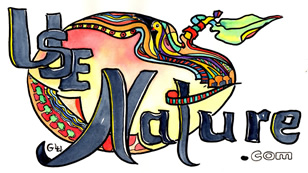useNature.com ... conventional and natural medicines comparisons
Holistic Health News
Natural Health Lifestyle Online Magazine
Holistic Health & Lifestyle Information
Article: Conventional and Natural Medicines comparisons.
What conventional and natural medicines have in common.
Article and Copyright by Dr Simon Cowap
... compiled by Dieter Luske - Editor - .D.-D.C.H.-D.M.H.-D.H
Looking for more explanation? Read: What is a Naturopathy - Naturopathic Medicine Advantage
What conventional and natural medicines have in common
"GEE doc, I don't really like tablets. Isn't there something more natural I could take?"
This is a fairly common request in general practice, and while it may cause some doctors to roll their eyes a bit, it's worth thinking about what it actually means.
In health and medicine the word natural is heavily loaded with connotations. Natural remedies are generally considered to be safe, but perhaps not all that potent.
Conventional medicines are often regarded as making more violent intrusions into our physiology. They are considered powerful, but somehow unnatural and therefore more prone to side effects.
Natural remedies are strongly associated with plants and other living things, while prescription medications make us think of high-tech chemical factories.
In reality, this gulf between 'natural' and 'conventional' medicines is nothing like as large as it seems.
A vast array of conventional medicines - of which penicillin, aspirin, and opiate analgesics are perhaps the best known - have plant origins. On the other hand, most natural remedies, like evening primrose oil, vitamin supplements or phyto-estrogen extracts, do undergo a significant degree of processing.
It must also be said that conventional remedies are far from universally effective, while many natural remedies have proven benefits. It is a sad fact of life, however, that the large clinical trials doctors rely on to generate good quality evidence about the safety and efficacy of any treatment are very expensive to run.
This puts natural remedies at a disadvantage, as being unpatentable they are of little interest to the big pharmaceutical companies who have the funds to organise such trials and then promote the treatment.
The 'nutraceutical' agent glucosamine sulphate is a good case in point. It has been appearing intermittently in the scientific literature for 25 years as a treatment for osteoarthritis. A number of small trials indicate that it is equally effective at relieving pain in this condition as the widely used non-steroidal anti-inflammatories like ibuprofen and the Cox-2 inhibitor Celebrex.
One trial even suggested that in addition to relieving symptoms, this agent has beneficial effects on joint cartilage - something no conventional medicine does. If glucosamine were owned by one of the big drug manufacturers it would be the subject of far larger trials, and if these benefits were conclusively proven it would be marketed as comprehensively as Celebrex or Viagra.
St John's Wort (Hypericum perforatum), widely used in Europe as an antidepressant, is in a similar position.
A number of studies suggest similar efficacy to conventional antidepressants, but it has not been as thoroughly investigated or promoted as it would be if it were patentable.
Hypericum also illustrates another point - all biologically active compounds, whether 'natural' or 'drugs', can cause side effects and interact with other compounds.
While hypericum's side-effect profile compares favourably with conventional antidepressants, it does affect an important enzyme system in the liver, and has been associated with photosensitivity and cataracts.
Combining it with other antidepressants can cause a potentially life-threatening reaction called the serotonin syndrome. What this tells us is that while we may see a contrast between conventional and natural medications, our body does not.
The difference between them is largely aesthetic, not biological. Our heart muscle cells don't respond differently to the digoxin molecule that was taken in a capsule from that which was drunk as foxglove tea.
As Paracelsus pointed out 500 years ago, all effective treatments can both harm and help.
Whether we call them natural or conventional doesn't really matter. What does matter is that we use them in a way that maximises the help and minimises the harm.
Article by ..
Dr Cowap is
... a GP in Newtown, Sydney
... provided by ...
the editor of Use Nature, Dieter Luske
* Disclaimer - Any general advice given in any article should not be relied upon and should not be taken as a substitute for visiting a qualified medical Doctor.
 Dieter Lüske - Editor
Dieter Lüske - Editor
N.D.-D.C.H.-D.M.H.-D.H
Editor's Articles
Lifestyle Magazine
Natural Health and Lifestyle
Articles:
How to stay healthy?
Health Foundation
Facebook Groups
If any of these FB Groups
is appropriate for you,
please join:
© 1998 - 2025 useNature.com: Australia - Dieter Luske - Writer - Creative Lifestyle Portal - Natural Holistic Health - Books & Art -
Site Map - Terms / Privacy - Global Health | Free Alpha Music | Photography | Natural Links |
